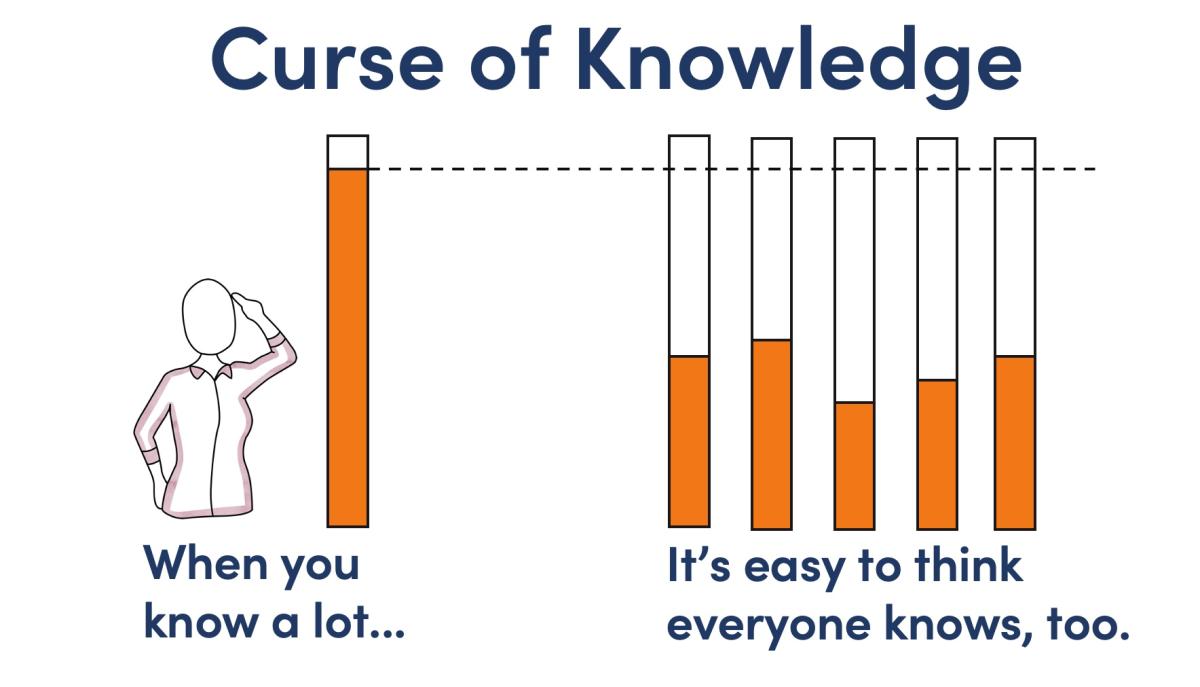The Curse of Knowledge and How to Defeat It

When I'm asked about the causes of unclear or confusing communication, I always highlight the curse of knowledge. I believe it is one of the most impactful ideas for communicators to understand. Why? Because we all have the curse and it influences our explanations.
The big idea: The more we know about a subject, the harder it is for us to explain it to a beginner. Our knowledge curses us and interferes with our ability to make accurate assumptions about our audience. We find it difficult to imagine what it's like not to know.

For example, think about a lawyer who spent her career reading and writing legal documents and talking with fellow lawyers all day, every day. When someone new to law asks this lawyer about tort reform, they're likely to get an explanation that seems confusing. This lawyer has the curse; they know too much to answer the question in a language understood by a layperson.
We're all guilty of having the curse. We all have something in our life that we know very well - perhaps too well to explain easily. The key is to know that the curse exists and to be prepared.
Video: Understanding the Curse of Knowledge
The video below from the Explainer Academy was recently published on YouTube. It explains the curse of knowledge using a study by Elizabeth Newton. Feel free to share.
What You Can Do to Defeat the Curse
Consider every word. Sometimes a word that is completely natural to you can doom an explanation. For example, let's say you're a financial planner in a meeting with a young couple, and you mention "amortization". It sounds perfectly natural and clear to you. Your peers use the word all the time. But the couple's eyes glaze over. They nod, but don't really understand. You have the curse and it's preventing you from being clear and understandable.
Empathize. When you're preparing to explain something new, take a step back and think about your audience as individuals. Imagine being in their shoes and hearing your words for the first time. Then, go back to your materials with the audience in mind. what might confuse them? Can you present the idea more clearly?
Connect. Is it possible for you to have a quick conversation with someone in the target audience? If so, ask about specific words and examples you'd like to use. Are there alternatives that will sound more familiar?
Set expectations. If we simplify too much, it may sound condescending and that can kill the vibe. When you need to explain an idea for a group, provide a quick preface. Something like, "This subject is complicated and I'm going to explain it. I'll start with basics that many of you already understand. This will help ensure that we keep everyone on the same page."
Your Options
Learn more about explanation skills in my book The Art of Explanation.
Our Explanation Master Course at the Explainer Academy is a media-rich guide to developing your communication skills.

